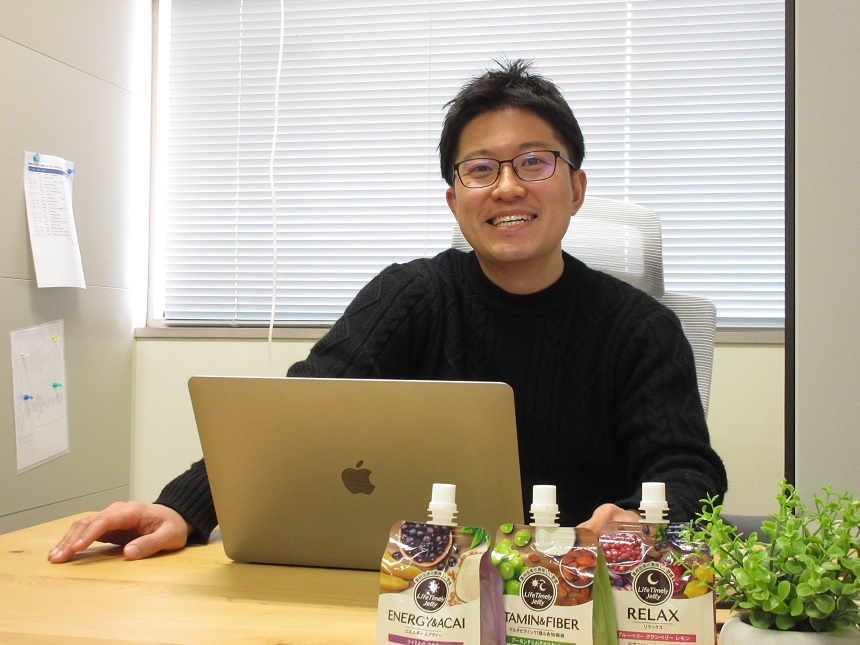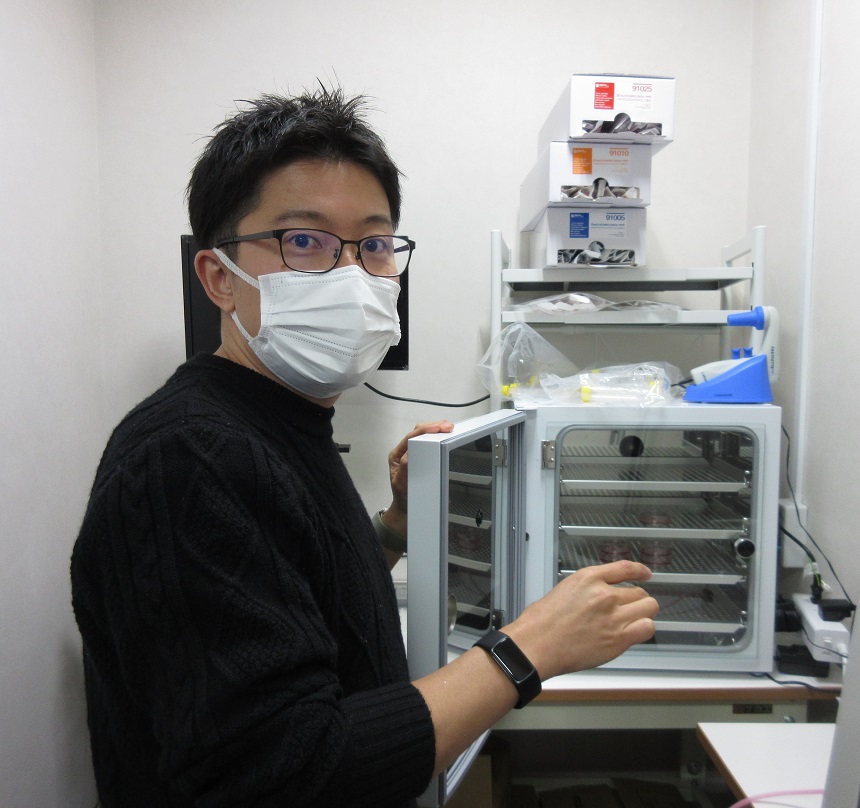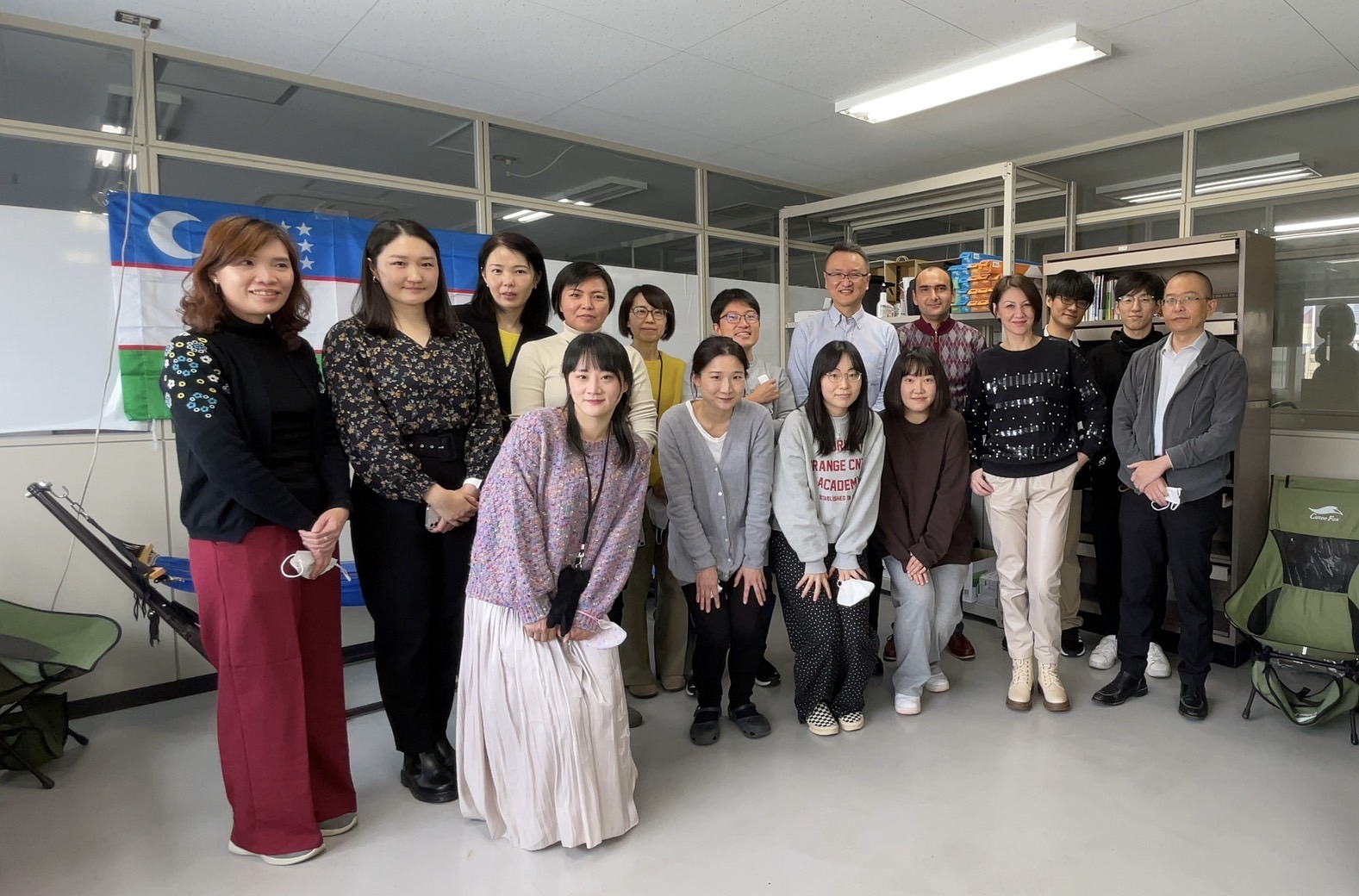Interview of Associate Professor Yu TAHARA
Researchers selected for JST FOREST in the FY2021

Examining the Relationship between Diet, Exercise, and Sleep and the Body Clock in the Hope of Enabling Tailor-Made Health Proposals
Chrono-nutrition, the science of how meal timing regulates your body clock
We naturally fall asleep at night and wake up in the morning without looking at a clock. In this way, living creatures have a mechanism in their bodies to mark the daily rhythm of their lives. This is called the body clock. In order for living creatures to stay healthy, it is necessary for their body clocks to be in sync with the actual time. For example, insomnia and lifestyle-related diseases that plague people today are believed to be intimately related to disorders of the body clock.
Many researchers around the world are engaged in the study of the body clock. As one such researcher, I specialize in chrono-nutrition, a field of research which seeks to shed light on the relationship between meal timing and the body clock. This is a discipline that adds the question of “when” we eat to traditional nutritional science, a field which focuses on “what” and “how much” we eat. My research to date has focused on how the body clock changes depending on the timing of meals, mainly using mice. Recently, I have begun research on humans, and am now in the phase of considering its application to daily life.
Tailor-made health proposals founded on chrono-health science
Diet is not the only factor that regulates the body clock. In my current research project, in addition to diet, we are also attempting to unravel the effects of sleep and exercise on the body clock in a comprehensive manner, with the goal of proposing better lifestyle habits to people based on the findings. We have named this field chrono-health science. The research has been selected for the Japan Science and Technology Agency (JST)'s FOREST (Fusion Oriented REsearch for disruptive Science and Technology) program.
In our research, we first work with companies to collect large amounts of data on people's diet, sleep, and exercise. We then use data science to analyze this big data to look for interesting health-related phenomena, such as “people who eat and behave in a certain way tend to lose weight.” Then, based on the phenomena discovered, we examine more appropriate ways of eating and behavior, and re-examine the mechanisms of the phenomena in animal experiments. By repeating each of these steps, we explore lifestyle habits that normalize the body clock, and share our findings with partner companies to make health proposals to people.
However, since the body clock varies from person to person, there is no one lifestyle that is suitable for everyone. Therefore, we aim to provide tailor-made health proposals optimized for each individual.
Furthermore, we have recently been actively working to apply our research findings in society. We are partnering with food companies to develop foods and beverages that incorporate chrono-nutrition. In the future, I would like to apply the findings of my research to the development of health management apps and the field of health technology.

Culturing cells for exploration of functional foods
My goal as a researcher who connects basic and clinical research is to conduct research that is relevant to medical settings
Although I now emphasize research on human subjects, I used to work only on animal experiments. What prompted me to shift my perspective from animals to people was an incident that occurred while I was studying in the United States.
At the time, I was conducting research on a neurodegenerative disease called Huntington's disease. I was investigating when to feed mice with Huntington's disease to regulate their body clocks and prevent the progression of the disease’s symptoms. After research showed that a daily fasting period at night was all that was needed, I approached clinicians and others who are actually treating human patients and asked them to use this treatment method. However, when Huntington's disease developed, the patients lost a lot of weight, and it was impossible for them to follow a diet that required them to spend time not eating. At that time, I realized that I had been conducting research without any knowledge of clinical practice.
Now, I have plenty of opportunities to hear about patient treatment cases from professors at Hiroshima University School of Medicine, and am able to conduct research with an eye toward human application. I have also learned that actual treatment involves sociology, psychology and other academic disciplines. I would like to make use of these insights and continue to conduct research that is relevant to medical settings as a researcher who understands both the basic and clinical aspects of treatment.

Members of the Department of Public Health and Health Policy , Graduate School of Biomedical and Health Sciences, who are assisting Dr. Tahara with his research
Creating a society where people can be aware of time without thinking
Clinical practice shows that it is difficult to change people's lifestyle habits. Even if people incorporate health management apps into their lives, I am sure there are many who soon grow tired of them because of the tedious data entry process entailed. In the future, I think we need a system that measures health data in a casual way and encourages people to change their behavior without any effort. For example, a chair that automatically measures your weight when you sit on it, or a mirror that gives you advice based on your physical condition when you look into it. We also need to conduct joint research with housing manufacturers in order to incorporate the mechanism into the living environment.
In addition, since coming to Hiroshima University in April 2022, my connections with other fields have increased, and in the future I would like to team up with professors in various fields such as sleep, exercise, and information. I hope to contribute to people's health and well-being by advancing research on the body clock across basic, applied, and clinical fields, helping to create a society where people can be aware of time without thinking.


 Home
Home

